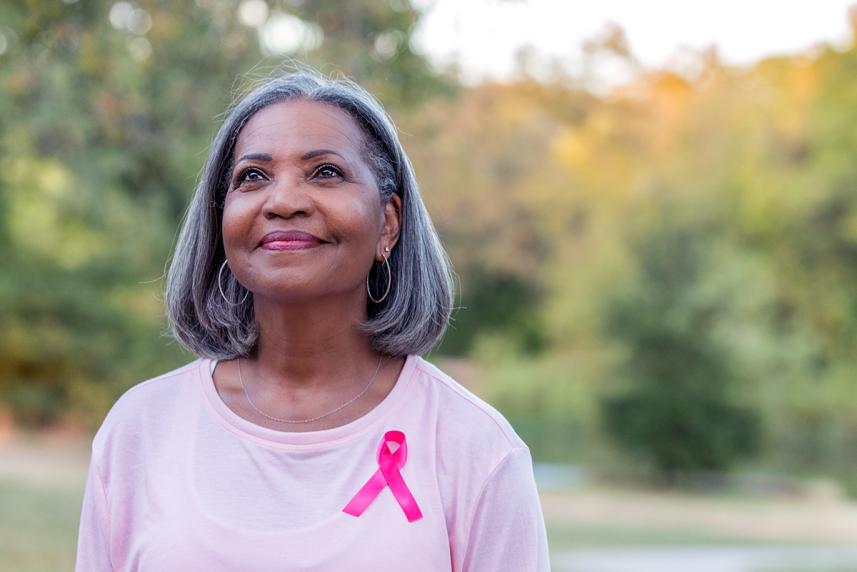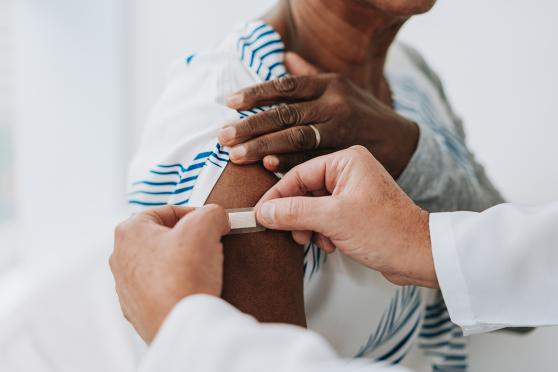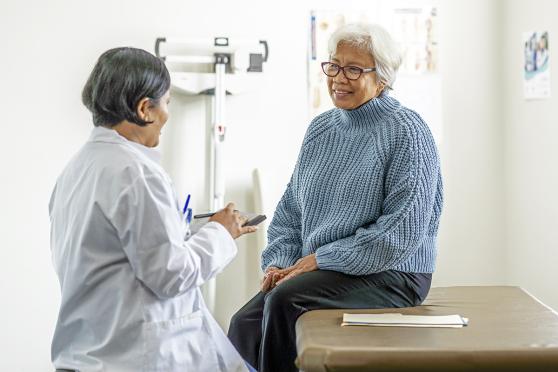5 things you need to know about breast cancer after 60
The recommendations and statistics change as you get older. Here’s what experts want you to focus on.

There’s no doubt that many women worry about getting breast cancer. Here’s where a little knowledge is a good thing. Learning more about the risks for older women (and some men) can help you feel calmer. And it’s important to remember that having risk factors for breast cancer doesn’t necessarily mean you’ll get the disease. Read on to find five timely facts.
1. The risk of getting the disease goes up as you age
Most breast cancers are found in women ages 55 and older, according to the American Cancer Society (ACS). And the risk that women will be diagnosed with breast cancer increases in their 60s and 70s. That’s why staying on top of your screenings is key.
Dr. Heidi says: Your IBX Medicare plan includes one mammogram every 12 months for women ages 40 and older, as well as a clinical breast exam every two years.
2. Breast cancer treatment has come a long way
If you do get a diagnosis, there is a lot to be hopeful about. Treatment has come a long way in the past few decades, and it’s common for women to be cured of breast cancer in their 70s, 80s, and even 90s.
3. Age and gender aren’t the only risk factors
Women make up 99 percent of those diagnosed with breast cancer, notes the ACS. (But men can get it too. More on that soon.) And besides getting older, other risk factors to discuss with your doctor include:
- Family history of breast cancer
- Dense breast tissue
- Reproductive history
- Certain inherited gene changes
4. Men can get breast cancer, too
Male breast cancer makes up less than 1 percent of all breast cancers. It usually occurs in men between the ages of 60 and 70. It’s important that you report symptoms such as a breast lump or nipple changes to your doctor.
5. It’s never too late to lower your odds of getting breast cancer
Anyone can get breast cancer. But there are some habits you can control that can reduce your risk, including:
- If you smoke cigarettes, take steps to quit.
- If you drink alcohol, limit that glass of wine or beer to one drink a day or less.
- Get regular physical activity. Brisk walks and yard work count!
- Eat a healthy diet.
Are you up to date with your mammograms?
If you get regular mammograms, congratulations. They are one of the best ways to catch breast cancer early, when it’s most treatable. And it continues to be important for older women.
- For women between ages 40 and 74: The U.S. Preventive Services Task Force recommends that all women get a mammogram every other year from age 40 until age 74, except from age 45 to age 54, when it’s recommended by the ACS that you get one mammogram every year.
- For women ages 75 and older: Have a conversation with your doctor about the best screening schedule for you.


